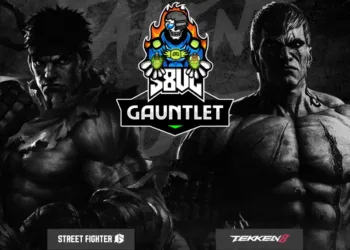Ubisoft’s turbulent 2025 continues with another wave of layoffs—this time hitting Massive Entertainment, the Swedish studio behind The Division franchise and the recently underperforming Star Wars Outlaws. In what’s become the second round of cuts announced in a single day, Massive introduced a “voluntary career transition program” that’s essentially offering employees severance packages to leave quietly.
Table of Contents
The Corporate Language Behind the Cuts
Massive Entertainment framed the layoffs carefully in their October 22 social media statement: “As part of our ongoing evolution and long-term planning, we have recently realigned our teams and resources to strengthen our roadmap, ensuring our continued focus on The Division franchise.”
Translation? They’re asking people to leave. The “voluntary” program gives eligible employees financial packages and career assistance—but being told you’re “eligible” is corporate-speak for “we don’t need you anymore.”

Ubisoft’s 2025 Restructuring Timeline
| Date | Studio/Action | Impact | Context |
|---|---|---|---|
| January 2025 | Leamington (UK) closure | 185+ jobs lost | Studio completely shut down |
| Q1 2025 | Düsseldorf, Stockholm, Newcastle | Staff reductions | Multiple European studios downsized |
| July 2025 | Red Storm Entertainment | Undisclosed layoffs | US studio hit |
| October 22, 2025 | RedLynx (Finland) | Up to 60 jobs at risk | Shifting to mobile/small screens |
| October 22, 2025 | Massive Entertainment | Unknown number | Focus on The Division franchise |
Sources: Insider Gaming, Game Developer, Tech4Gamers
Why Massive Entertainment? The Star Wars Problem
While Massive Entertainment’s Snowdrop Engine is technically impressive—delivering some of the best-looking games this generation—both Avatar: Frontiers of Pandora and Star Wars Outlaws failed to meet Ubisoft’s commercial expectations. Star Wars Outlaws particularly underperformed despite the massive IP recognition.
The studio’s statement conspicuously mentioned The Division 2, The Division 2: Survivors, The Division Resurgence, and The Division 3—but zero references to Avatar or Star Wars projects. That silence speaks volumes about Ubisoft’s priorities going forward.
According to reports from French outlet Le Figaro, Massive is doubling down on The Division franchise and the technologies that power their games—Snowdrop Engine and Ubisoft Connect—while seemingly abandoning single-player open-world adventures that haven’t delivered returns.
The Tencent Factor: Investment Doesn’t Mean Stability
In a deal that shocked the industry, Tencent invested approximately $1.25 billion in Ubisoft, creating Vantage Studios—a joint venture that now controls Assassin’s Creed, Far Cry, and Rainbow Six Siege. The partnership was supposed to stabilize Ubisoft’s precarious financial position.
Instead, it accelerated restructuring. Following the Tencent partnership, the majority of Ubisoft employees expressed concerns about their future, stating they felt “excluded and unsafe.” Their fears materialized—Ubisoft has laid off employees on three separate occasions since the investment closed.
The company even reportedly pushed out veteran developer Marc-Alexis Côté, who led the Assassin’s Creed franchise, just last week. When even franchise heads aren’t safe, what chance do mid-level developers have?

A Gaming Industry in Crisis
Massive Entertainment’s layoffs reflect a broader industry trend. The gaming sector has hemorrhaged tens of thousands of jobs since 2023, as publishers chase “sustainable success” through cost-cutting rather than investment in creative talent.
Ubisoft’s stock price has fallen 90% in just five years—a staggering collapse for a company responsible for some of gaming’s most important franchises. The restructuring aims to “simplify, reduce costs, and ensure stronger prioritization,” according to corporate statements.
But there’s an uncomfortable truth here: being told you’re taking “your next career step on your own terms” while receiving a severance package isn’t empowerment—it’s euphemistic corporate language for being shown the door.
What This Means for Gamers
For players anticipating new Ubisoft titles, these layoffs signal potential shifts in development priorities. The Division franchise is clearly safe, but ambitious single-player experiences like Star Wars Outlaws or Avatar may become rarer as Ubisoft prioritizes proven franchises and live-service games.
RedLynx’s pivot to “small screens” (mobile gaming) exemplifies this strategy—chasing reliable revenue streams over risky AAA innovations.
For gaming industry observers tracking publisher strategies, Ubisoft’s restructuring represents a cautionary tale about franchise fatigue and the dangers of massive development budgets without corresponding sales. And for gamers following studio closures and layoffs, 2025 has been one of the bleakest years on record.
The Human Cost
Beyond corporate strategy discussions, real people are losing their jobs. Massive Entertainment employs hundreds of talented developers, artists, and engineers who poured years into creating technically stunning games. The “voluntary” nature of the program doesn’t soften the blow when the alternative is involuntary layoffs down the line.
As one Reddit user noted: “That sucks. Massive does excellent work on environments and weather, in my experience.” The studio’s technical achievements are undeniable—but in an industry increasingly driven by financial metrics over artistic merit, technical excellence isn’t enough.
For more information on Ubisoft’s restructuring initiatives, visit Ubisoft’s official corporate news page and industry analysis at Game Developer’s coverage.
Bottom Line: Ubisoft’s latest layoffs at Massive Entertainment underscore a harsh reality—even studios creating technically impressive games aren’t immune when commercial performance misses targets. With Tencent investment accelerating rather than preventing job cuts, 2025 may go down as one of the gaming industry’s most turbulent years for workers.








